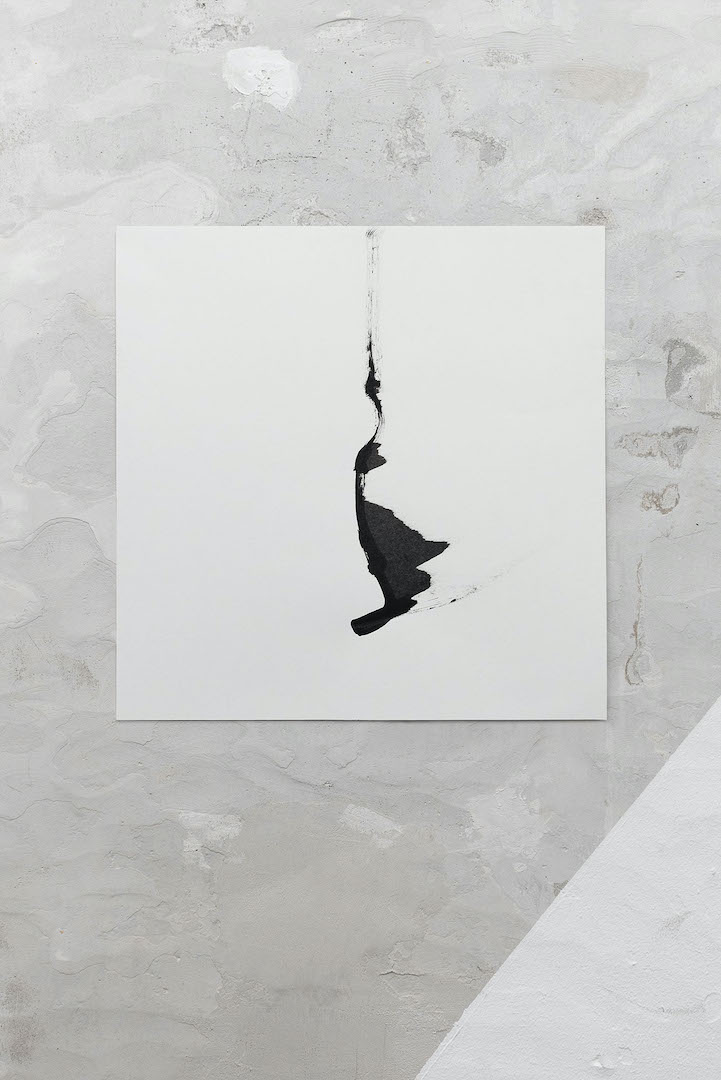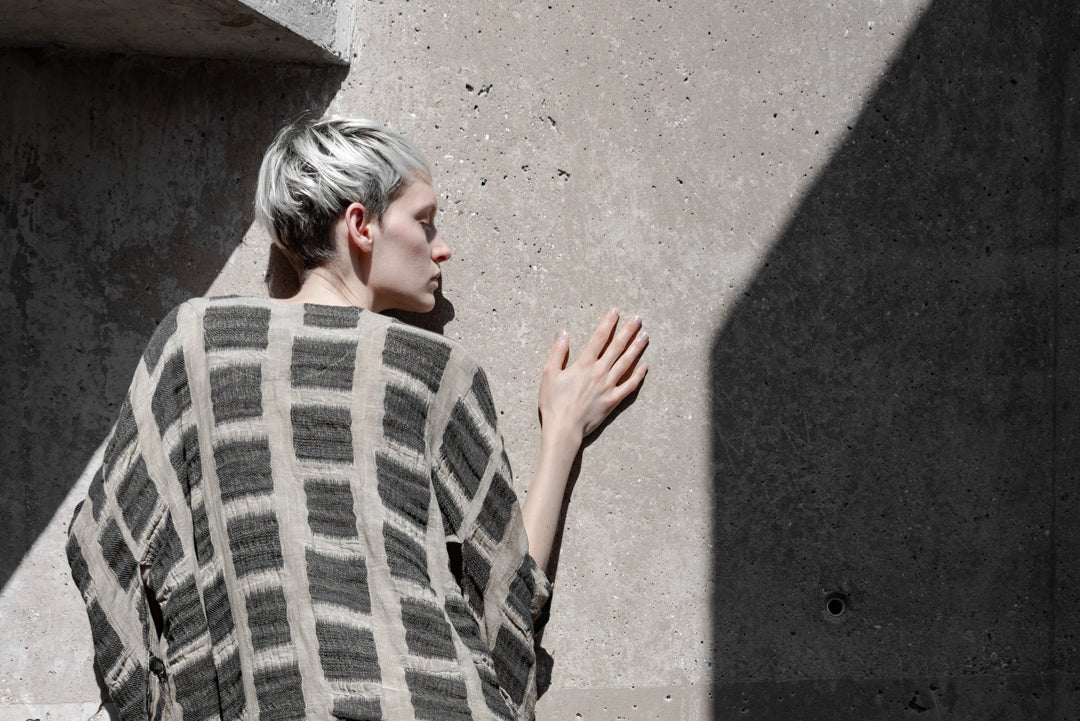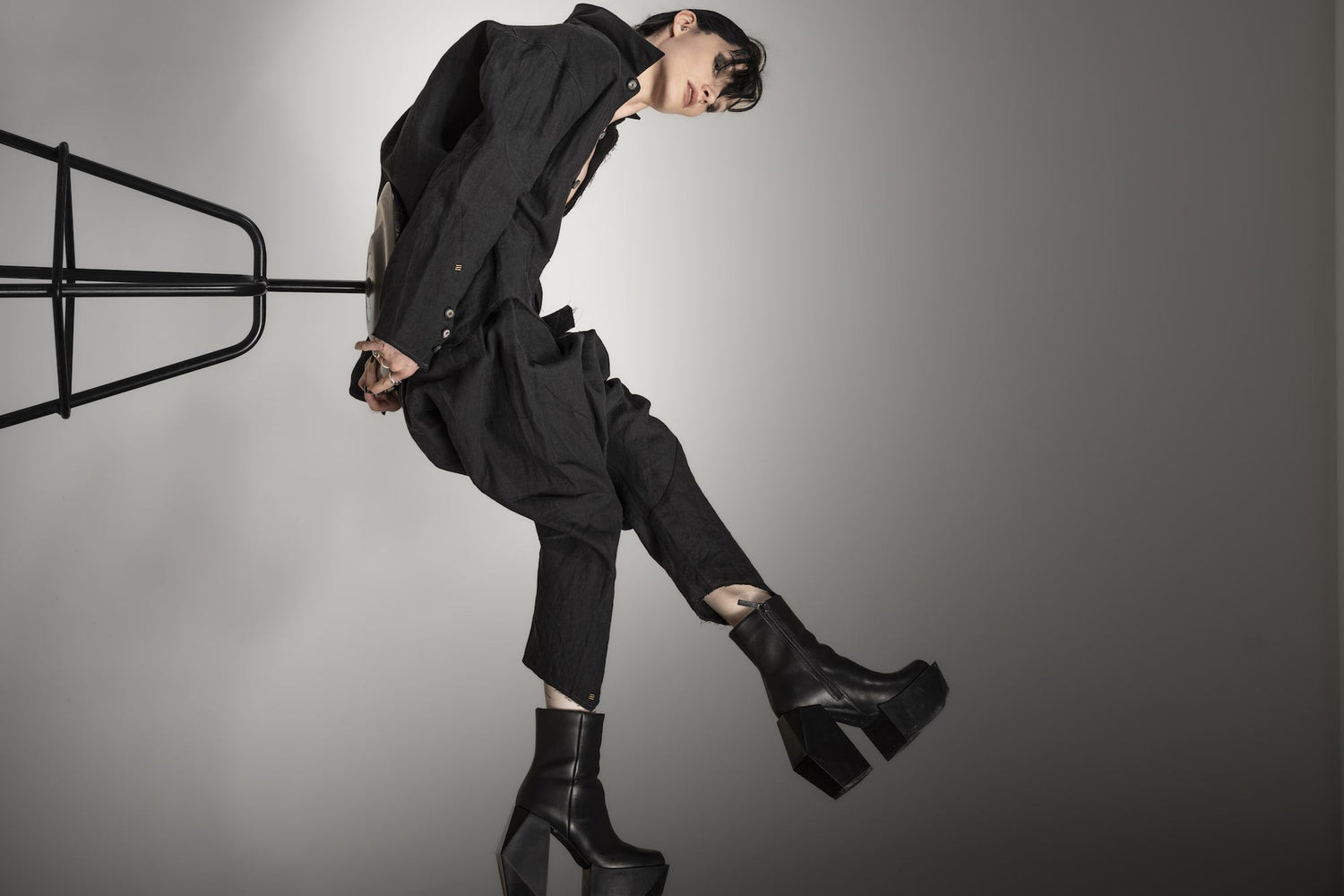NEW FREEDOM,
OUR QUIET AWAKENING
AND THE SCENT OF SPRING
E S S A Y
The steps into the new normal – one that will be different from the normality we used to know – are small and slow. One of these little steps is extremely gratifying for us: Starting Tuesday, 14 April 2020, we are there for you again; the gates of our showroom open once again. In our beautiful and quiet historical location on Sankt-Ulrichs-Platz, where spring arrived a long time ago and where, in these exceptional circumstances, we also provide masks and disinfectant for you.
Stefanie will offer you personal advice again, and, as usual, Toni will serve you coffee or wine – or maybe both? Of course, you can also order in our new online store. If you live in Vienna, a bike courier will deliver your selected unique pieces within 3 hours; in Europe, we deliver within one day. For the rest of the world, deliveries take 2 to 4 days.
WE ARE BACK, BUT DIFFERENT
It is not a loud new beginning with exaggerated cheerfulness, not like a phoenix rising from the ashes. Instead, our comeback is more of a gradual, humble and quiet return to a daily routine of which we don’t know yet how it will develop and how it will shape us. We don’t know how the past few weeks are going to extend into the future and what will remain of all the good things that have emerged: the solidarity, the way essential workers have become visible, the value of freedom.
or how much longer will the countries of the world remain withdrawn behind their own borders? When will Europe feel like a whole again? What will remain? What will disappear? What is going to change? Are we at the beginning of a paradigm shift that we cannot see yet?
There is more to life than orgasms and acts leading up to them.
JÜRGEN HABERMAS
THE TRANSFORMATION OF LANGUAGE
The last few weeks have been weeks of absences, restrictions and deprivation. Philosopher Jürgen Habermas once said, “There is more to life than orgasms and acts leading up to them.” Perhaps we were already aware of this fact, but only now do we really feel what he might have meant.
We are witnessing a renaissance of a rhetoric of war: political leaders refer to an “invisible enemy we can only fight together”, to isolation and quarantine. Comparisons to World War II have long ceased to surprise us. The “intoxication of a state of emergency” is invoked, characterized by “blood, sweat and tears”, which turns us all into involuntary warriors against the crowned virus.
ans affecting the deepest layers of our fundamental rights have become a matter of course: from one day to the next we weren’t allowed to see friends and family anymore, we had to cancel planned trips and close our stores, cafés and restaurants, leaving us with existential questions and too much time – at least many of us. Others, on the other hand, had to and still have to make superhuman efforts in order to keep the system from crashing.
Life can only be understood backwards; but it must be lived forwards.
SØREN KIERKEGAARD
THE UNIFORMITY OF THE DAYS
“Any idiot can face a crisis – it’s this day-to-day living that wears you out,” wrote the playwright Anton Chekhov, addressing the existential void in a life without ups and downs. A life of which we always expect more than it can give us. But even a crisis becomes a daily routine when it goes on for an extended period of time. For many of us, it is a time of uniformity within a sharply defined framework that leaves little latitude. We are heteronomous rather than autonomous; the days and their routines resemble each other more than usual; our sense of time is different; having to forgo encounters and rituals such as reading a newspaper in a coffeehouse, going out for dinner, going to see a play – all this has probably left its mark on us, a mark we cannot yet classify.
„Rituals (…) transform being in the world into being at home. They make the world a reliable place. They are in time what an apartment is in space. They make time inhabitable. In fact, they make it accessible like a house,” philosopher Byung-Chul Han wrote. The world is not a reliable place anymore. As a response, we make our own four walls more inhabitable, perhaps by introducing new rituals. Our apartments, our houses – these are and remain places we can actively shape. Places where we do not have to wear any masks. At least not protective masks.
“Life can only be understood backwards; but it must be lived forwards,” Søren Kierkegaard wrote. Which scars will call for attention later? We don’t know. But we feel that the last weeks have led to reversals whose nature is still in the dark. What did these last few weeks do to us? What are we going to make of them? What surprises are hidden within them?
Go on into the unknown, the uncertain and insecure, using what reason we may have to plan as well as we can for both security and freedom.
SIR KARL POPPER
BREAKING OPEN: THE EXPANSION OF THE SELF
Despite this uniformity that has become the norm, something is slowly breaking open – and we can feel it. Not just in the fresh air of spring or in the blue, silent, plane-free sky, in the garish meadows bursting with newly burgeoning flowers, in the cherry and magnolia trees that are now “jumping out of their skins” (Wilhelm Busch), in full bloom and emitting their sweet fragrance as if they were in a hurry.
Many of us are also jumping out of our skins, even if it happens quietly and with great respect. But the underlying feeling is sunny, open and confident – it feels like Elton John’s “I’m Still Standing” or Queen’s “Don’t Stop Me Now”. Springtime awakens the desire to expand the self, which had occasionally felt restricted amidst all the rules and bans. It is absolutely legitimate to question and challenge these rules before deciding to adhere to them.
Any feeling other than limitlessness is useless.
ROBERT MUSILRemaining vigilant and using one’s reason are essential in order to avoid becoming gregarious animals following the masses: “Have the courage to use your own reason,” Immanuel Kant once said. It is time to look forward again, to “go on into the unknown, the uncertain and insecure, using what reason we may have to plan as well as we can for both security and freedom,” as Sir Karl Popper expressed it. Despite the ubiquitous safety distance, we are now thinking in the direction of freedom and autonomy.
We pursue plans despite the restrictions. We allow ourselves to drift into fantasy worlds. Instead of wallowing in dystopian thoughts, we now lose ourselves in utopias, and it feels good. It feels like springtime, breaking open, future, fresh air and sunshine. It feels like the words of writer Robert Musil: “Any feeling other than limitlessness is useless.”
MORE ESSAYS, PENSÉES AND IMPRESSIONS

A NEW KIND OF ACQUIRING - A JOURNAL AROUND THE WORLD
The new normality of shopping is a new experience for many. Especially when everything is stubborn and lingering, looking and feeling in our showroom at Sankt Ulrichs Platz is something different than strolling through the online shop. Nevertheless, we want to be there for you and therefore adapt our service.

DIE KRISE, DAS ABSURDE UND DIE DEMOKRATIE
"Eine Krise besteht darin, dass das Alte stirbt und das Neue nicht geboren werden kann“, schrieb der Schriftsteller Antonio Gramsci. Ein Essay über Kreativität in der aktuellen Situation, Sisyphos als glücklicher Mensch und Schopenhauer als Glücksphilosoph, die Akzeptanz der Absurdität, die Freiheit in ihrer Abwesenheit und die Gefahr für die Demokratie.



